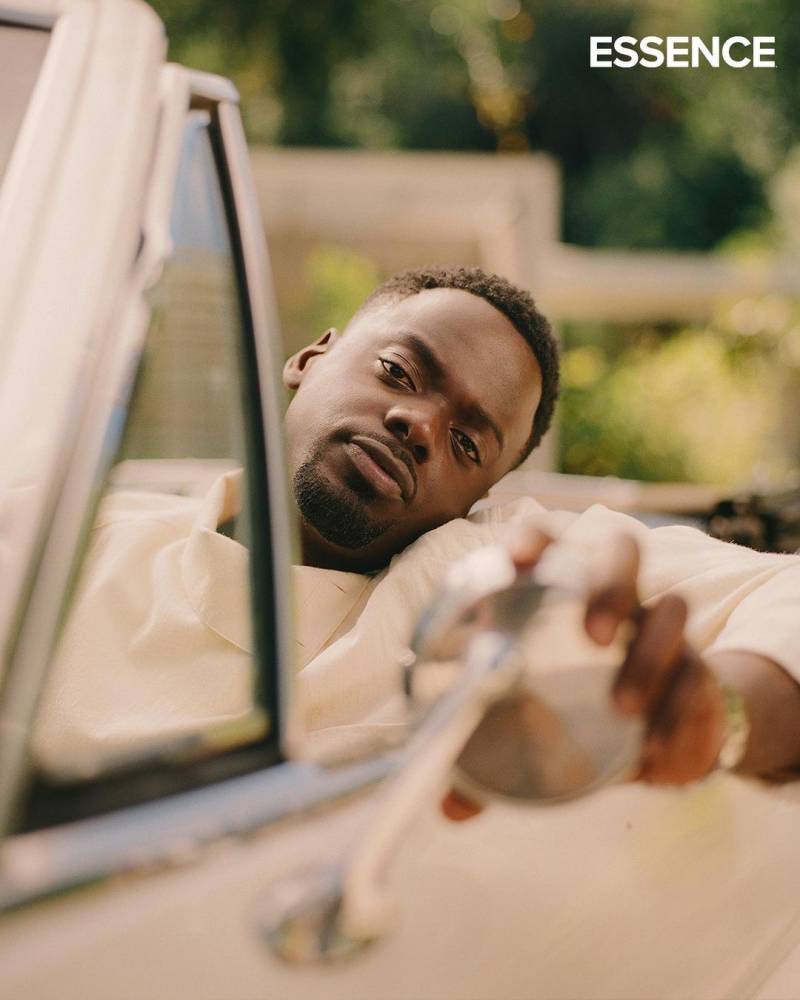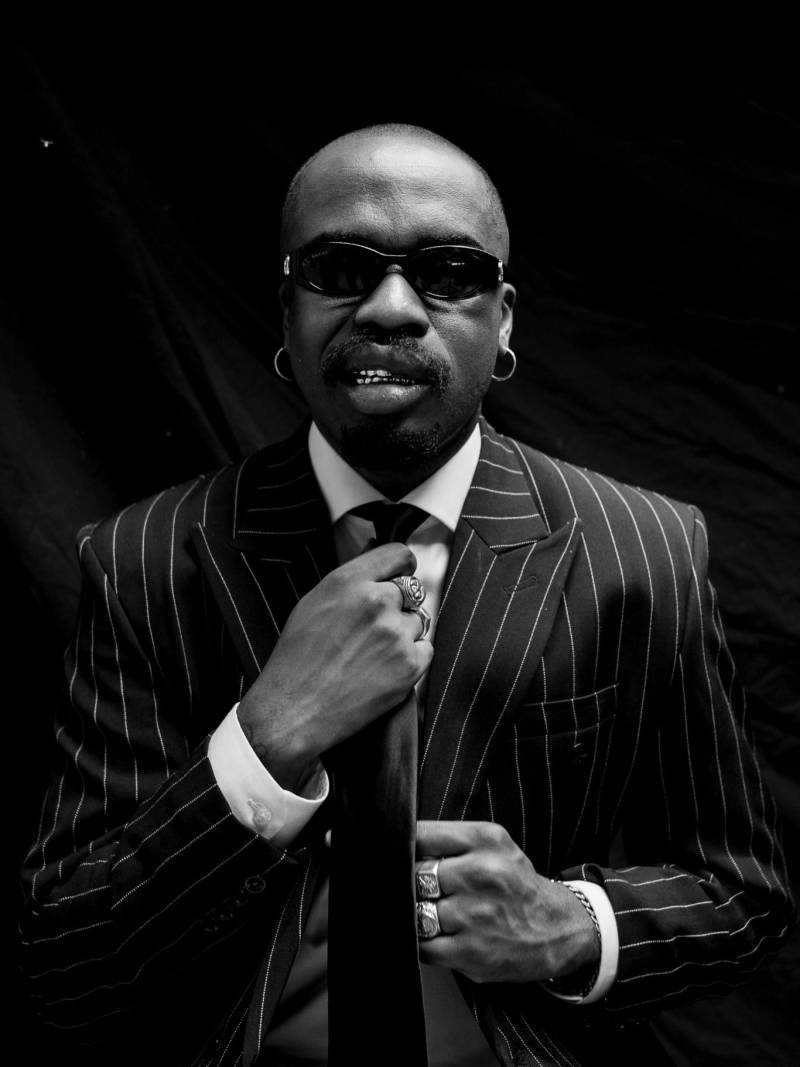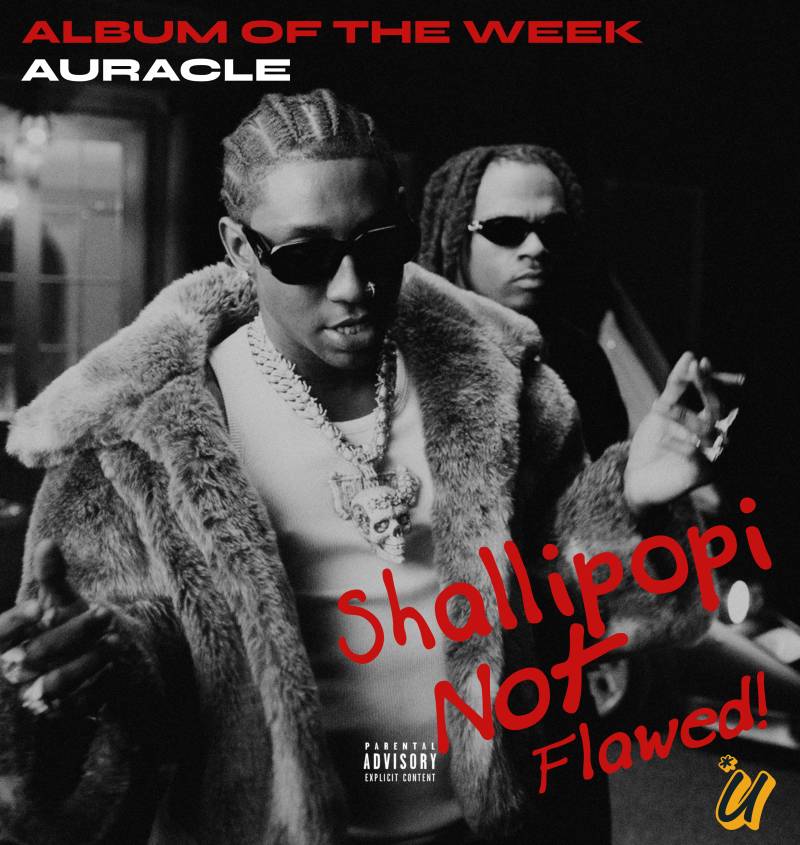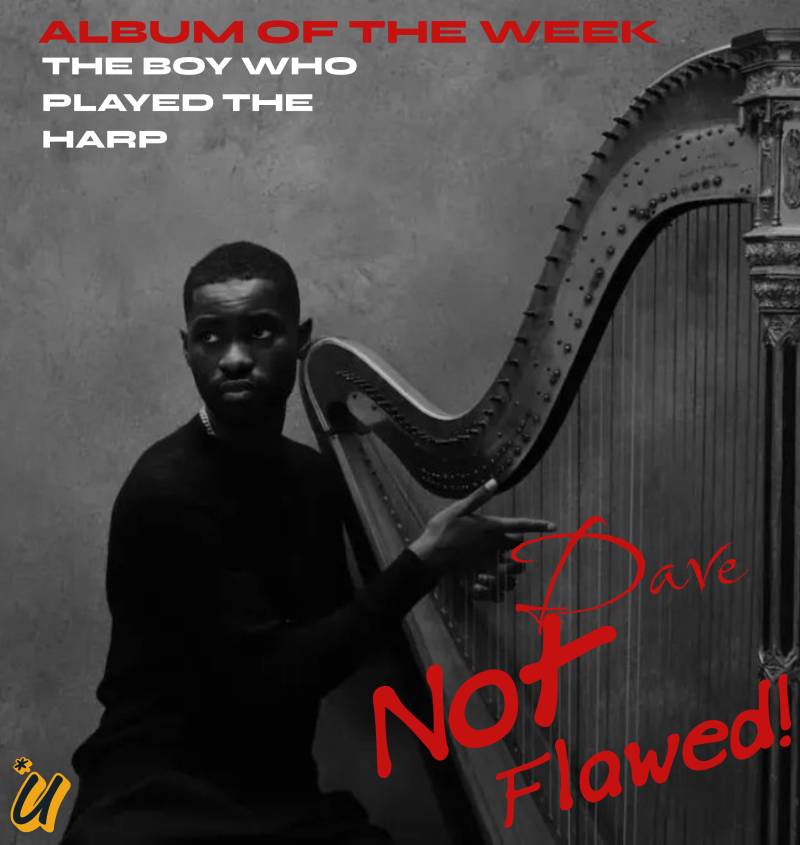Five years ago Jordan Peele an Academy Award for Best Original Screenplay and Kaluuya a nomination for Best Actor (Kaluuya would later win this award for his role as Fred Hampton in Judas and the Black Messiah). Many have attempted to replicate their recipe of nuanced racial and social awakening against a backdrop of traditional slasher-film elements. Yet it that has proven not to be duplicatable—at least not without their involvement.

In 2017, an actor then unknown to American audiences played his first lead role, in a breakout film that also marked the writer and co-producer’s directorial debut. Instantly creating a new blueprint for the horror genre—and for Black creators’ places in it—Get Out launched British thespian Daniel Kaluuya’s career as a leading man in Hollywood, while simultaneously establishing Jordan Peele as an innovator of avant-garde cinema.
This summer, Peele and Kaluuya will reunite for one of the season’s most anticipated movies, Nope, in theaters July 22. Ahead of that release, ESSENCE brought the groundbreaking talents together for a candid conversation about their unique bond as actor and director—and the intentionality that made Kaluuya the star he is today.

"I WASN'T GETTING ROLES, BECAUSE RACISM AND ALL THIS KIND OF STUFF—SO YOU REACHING OUT WAS LIKE, OKAY, I'M NOT CRAZY. IT’S PROPER. IT'S GOING TO BE ALL RIGHT.”

"I'VE NEVER TOLD YOU THIS, BUT WHEN YOU REACHED OUT TO ME, I WAS REALLY DISILLUSIONED WITH ACTING.”
Jordan Peele: So it’s kind of surreal sitting here interviewing Daniel Kaluuya. I vividly remember when I met you—because I saw you in the "Fifteen Million Merits” episode of Black Mirror, which was a tour de force performance and an undeniable audition for Get Out. I knew that as a performer you embodied the spectrum of somebody who could play small and subtle. Someone we would root for, but who also had an explosive side and an ability to access certain deranged elements in your psychology. I already knew I wanted you for the film—but you blew me away in the audition, and now here we are.
Daniel Kaluuya: I've never told you this, but when you reached out to me and we had that Skype, I was really disillusioned with acting. I had stopped acting for like a year and a half.
Peele: No kidding.
Kaluuya: I checked out, because I was just like, this isn't working. I wasn't getting roles, because racism and all this kind of stuff—so you reaching out was like, Okay, I'm not crazy. It’s proper. It's going to be all right.
Peele: It's wild because even while making a movie in 2016, we were looking for a lead Black actor and realized there's not a lot who have been given opportunities to be the lead of a film. I was just so thrilled to realize what the rest of the world considers a very small pool. I had at least one of the best actors I'd ever seen in my movie, and from the very beginning I was like, this is how—when you have a script that's good, and you get an actor like this, who has done work but has untapped potential and an untapped trust put into him—you get something special.
Read Also; Mr Eazi, Black Coffee and Ajebutter22: The African music artists backing startups

Kaluuya: That’s a testament to you, man. That was the script. I remember when it came through, I was like, this guy knows what he's doing. It's very rare you find writers that know what they're doing. No one understood it—but I was like, This is a hit, this is a banger. It was just audacious.
A lot of times when you're acting you just say the lines. That's the actual work—being wise enough to not act when the script's strong, and the story's strong, and the character's strong, and the relationship is strong. You’ve just got to say the words, and the script does it for itself.
Peele: One of the first questions I get asked a lot is, Working with Daniel, what is it like? What's that bond like? And part of the bond I think we have, that few artists get to have, is that feeling of: We knew we had something, before the rest of the world. We trusted each other to go get it. I’ve watched your career after Get Out, and you’ve continued to make choices that felt very wise to me. It seems like after that project, you came with a real intention about how you wanted to shape your career.
Kaluuya: I did. I was just like, If it's not a ‘Fuck yeah,’ it’s a no. That kind of cleaned house. A ‘Fuck yeah’ to me is when you're doing plays, you're doing it for 400 pound a week. That's pre-agent, pre-tax, pre-everything. So I was like, Would I do this for 400 pound a week? And if the answer was yes, then all right, cool, I'll do it.
I want to go into places that I don't know I can. I want three-dimensional characters. I want to tell the story, no matter how big or how small. In Widows, I'm not in the film that much, but my character had an arc—he had a story and an evolution. As long as that’s there, then I can engage with it.
Peele: All of your characters are very distinct. You never double up on the same energy. I called you very early about Nope—and said I want to make a Black UFO movie. I had a character in mind, a Hollywood animal trainer named OJ Haywood who’s a very different character than I've ever seen you play. I'm curious: What was it like to get into this character? How did it feel?
Kaluuya: It was tough, because all of the Oscar stuff happened, and then I literally pivoted. I had eight days of a holiday and went straight into this. I thought it was an exciting challenge. I watched a lot of Clint Eastwood movies, and there's a lot of guys that are watchers. When I had to learn how to ride a horse in like three weeks, how I had to get to it is, I had to quiet myself. I realized people that are with animals are very still. So OJ's very still—there's not much to him. I remember I said that at the beginning, I was like, Jordan, I'm going to give you an indie performance. This is a Blockbuster, but I'm going to go indie with it. And you were like, No, no, bring that, bring that.
Peele: I think part of it is, you need to have a certain humility when you're taking on roles, which I sense in you. I often sort of refer to a calming notion—the idea that people come for the performers. You can have a movie that has the best everything, right? Best VFX, best set, best costume—but if the acting is shit, the movie is shit.

Kaluuya: My thing is sound. If the sound’s bad, I can't watch it. I'm actually really forgiving of acting that's not good. I'm like, Ah, they tried. But I get what you’re saying about performers—you have to buy it. That's something I've realized, being in America. In England it's about what you do. In America they have to buy into who you are, in order for people to really get behind you and watch your stuff.
Peele: Talk to me about that.
Kaluuya: It's something I learned on the press run for Judas and the Black Messiah. A lot of times people think I'm guarded, but I'm just new. I'm in a new country. Then, when I was being more open, people were talking to me about the interviews—and I'm like, Why are you talking about the interviews? They weren't talking about the film.
In England you don't root for people the same way. In America it’s like, ‘Oh, that's my guy. He's got my perspective. Or she's got my perspective. Cool, I'm rolling with them.’ In England it's about talent, and I think in America it's about the character of a person. I agree with the performer aspect, but I think I've seen great actors do great performances. And if the film doesn't work, I don't finish it. If the story's boring, I'm like, The story's boring. It's about both. It's not one or the other.
Peele: That's when it feels right, when we're working together.
Kaluuya: You care about actors; you care about the acting. Not a lot of directors do. You create an environment for us to really explore and ask questions, and create, and be invested within our characters. Get Out was with my first lead role ever, so I was kind of spoiled by the fact that you’ve done lots of acting before—and the fact that you did improv, so you're not wedded to the lines. Especially being the writer as well, a lot of people are very precious about that. You kind of let the environment be. I appreciate that.
Peele: Thank you, man, for saying that. When you've created a script, an actor having a divergent opinion from what you thought is a very immediately scary notion for a director. It's like, oh my gosh, this could throw everything off. What I try to do—and I've been blessed to have great partners who get how to do this—is have that conversation and really hear and listen to what this person is saying. Not only as my hired expert on this character, but as a person who knows the material and is having a reaction. What will often happen is, we'll get into a bit of a conversation—and nine times out of 10, if I figure out how to achieve what this person's telling me, it just blossoms into this thing that I didn't even intend. A big part of my process is being able to use everyone's brilliance. The tricky part is not being so open that I lose sight.

“A LOT OF TIMES WHEN YOU'RE ACTING YOU JUST SAY THE LINES. THAT'S THE ACTUAL WORK—BEING WISE ENOUGH TO NOT ACT WHEN THE SCRIPT'S STRONG.”
Kaluuya: Lose sight of your vision…
“
I WANT TO GO INTO PLACES THAT I DON'T KNOW I CAN. I WANT THREE-DIMENSIONAL CHARACTERS. I WANT TO TELL THE STORY, NO MATTER HOW BIG OR HOW SMALL.”
Peele: I want to talk about genre for a bit, because with Nope, I came to you and I said I want to make a great American UFO horror movie that I haven't seen. And I think one of the things we have with this film is a movie that transcends the horror genre, in a way. The first film clip [Eadweard Muybridge’s Animal Locomotion] was essentially a Black man on a horse who has been forgotten and erased. Part of this film, to me, is a celebration and a response to that. We can be the leads not only of a horror movie but also action, adventure, comedy, etcetera. I'm curious—when you're talking about the film from a genre perspective, what do you call it?
Kaluuya: Peelium.
Peele: I can't use that. I can't use that. It seems too—
“IN ENGLAND IT'S ABOUT WHAT YOU DO. IN AMERICA THEY HAVE TO BUY INTO WHO YOU ARE, IN ORDER FOR PEOPLE TO REALLY GET BEHIND YOU AND WATCH YOUR STUFF.”
Kaluuya: No, honestly. In three more films, you'll be able to say it. Nope—I feel like it's almost horror-adventure. I hope you don't mind me saying, like Close Encounters. I remember when I watched that for the first time, probably about four years ago, and I was like, Wow, this has stood the test of time. This is an incredible film now, especially with all the technology and all the kinds of stuff that he's managed to make. It's like epic horror, essentially. I know another director, he said, “I'm not a minimalist, I'm a maximalist.” And I love when Black people just go for it—because fuck it. Why not? We're in the game. Fuck it. I feel like this is that.
For me, it's about, What genre can you reinvent? And what genre can you expand? I feel like you have expanded horror already, and now you're doing it again—giving it scale and epicness. I love pushing the envelope. We’re in a creative industry, but people will sometimes handle this like they're working at the bank. It's nuts to me. Let’s go—let's create. I don't like hearing, ‘Oh, I've never seen that before.’ That's the point. That's why people watch films. So it was amazing to be in the center of something that I used to love watching as a kid as well.
Peele: It's so tricky being considered in the vanguard of Black horror, because obviously Black horror is so very real, and it's hard to do it in a way that's not retraumatizing and sad. I was going into my third horror film starring Black leads, and somewhere in the process I realized that the movie had to be about Black joy as well, in order to fit what the world needs at this moment. So that is part of why there's sort of a spectrum of tonality of genre in here, because I wanted to give the horror, but I also wanted to give our characters agency and adventure and hope and joy and fun that they deserve. Thank you so much for bringing OJ to life. I can't wait for the audience to see this performance. I just love it.
Kaluuya: Thanks for having me, always, bro.
Source; Essence Magazine




